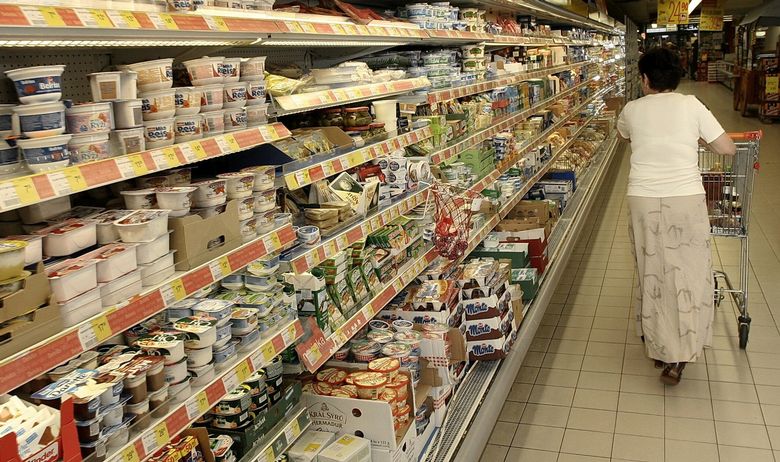Rice, flour, pasta, oil, milk, yogurt, dairy products, vegetables, and fruit are among the 73 items included in the “autumn consumption basket.” The government has decided, following a proposal from the Ministry of Economy and Labor, to cap the gross profit margin for these products at 10% in both wholesale and retail trade. These products will be labeled with the message “less costs, more for you” at markets. This decision will come into effect the day after its publication in the “Official Gazette of the Republic of North Macedonia” and will remain valid until October 31.
At a press conference, Minister Besar Durmishi announced that this measure is expected to reduce food and non-alcoholic beverage prices by an average of 10%. The decision is based on data from the State Statistics Office, which showed a 4% increase in food prices between December 2023 and August 2024. The largest price hikes were in fruit (10.9%), milk, cheese, and eggs (6.6%), vegetables (3.9%), meat (3.6%), and bread and cereals (2%). Non-alcoholic beverages saw a 9.4% increase, with mineral water, soft drinks, and fruit and vegetable juices rising by 11.1%, and coffee, tea, and cocoa by 7.7%.
According to the data, in consultation with the working group that was formed by representatives from the Ministries of Economy and Labour, Finance and Agriculture, we believe that this increase in the costs of food and soft drinks is excessive and disproportionate in relation to the growth of procurement costs and the operating costs that merchants incur. Our estimates are that with the entry into force of this decision, the cost of food and non-alcoholic beverages will decrease by an average of about 10 percent, which will also reduce the cost of living in the consumer basket for the food and beverage group, said Minister Durmishi
Under the new decision, traders must clearly display the label “less costs, more for you” on products in the autumn basket, both on shelves and in refrigeration units, as outlined on the Ministry of Economy and Labor’s website.
Additionally, wholesalers and retailers are required to maintain at least 70% of the quantities of these products purchased in August throughout the upcoming months.
This autumn consumption basket initiative will be extended for other holiday periods, such as Christmas, Ramadan, and Easter, when prices of basic food items often increase, to help protect the standard of living.
Some of the products included in the list are:
– White rice (900g-1kg packages)
– Wheat flour (type 400, 1kg-2kg)
– White and semi-white bread (450g loaves)
– Baked goods (pretzels, burek, simit pogacha, and puff pastry)
– Biscuits (Petit Beurre, 300g-500g)
– Pasta (500g, without additional ingredients)
– Edible sunflower oil (1 liter)
– Beef and pork (boneless, various cuts)
– Chicken (whole or in steak form, fresh or frozen)
– Various sausages, salami, and pâté
– Frozen hake fish
– Dairy products (milk, yogurt, sour cream, cheese)
– Eggs (packs of 10)
– Butter and margarine
– Fruits (apples, peaches, grapes, bananas, etc.)
– Vegetables (potatoes, onions, carrots, tomatoes, peppers, etc.)
– Frozen and canned vegetables
– Olives, ajvar, and mushrooms
– Sugar, jams, and marmalades
– Milk chocolate (100g)
– Condiments (ketchup, mayonnaise, spices)
– Coffee (200g)
– Fruit juice (1-liter cartons)





Comments are closed for this post.